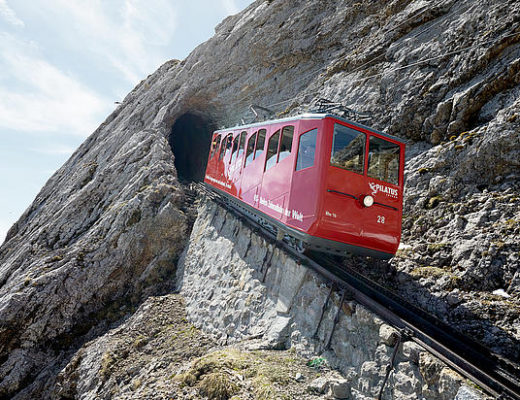Motor accidents and deaths on Sri Lankan roads are increasingly turning into a killing field. This becomes obvious when one is focused on TV news about the harrowing experiences of how and why human beings become victims to errant drivers on public roads. What more can be eloquent than, ‘a baby came off the clutches of the child’s mother and got crushed by manic truck driver driven at high speed’.
Unruly truck drivers, bus drivers and tuk tuk drivers, particularly, pay no heed to any of the traffic laws in this country. They should be dealt with severely whenever they cross the limits thinking that roads are their own domain! Apparently, most of the reckless drivers are said to be under the influence of liquor or drugs, at any time of the day. People in this country have seen to what extent the drug menace has spread; and Sri Lanka has notoriously become an international hub for drug business. The Sri Lankan Police are performing an admirable task by raiding vast quantities of drugs. On the 1 of April, millions of TV viewers saw the disposal of tonnes of raided drugs in the presence of President Sirisena.
Random checks

When it comes to road accidents, it appears that only random checks are done by the Traffic Police whenever they get ‘orders from the top’. In order to minimise road accidents and deaths, the traffic section of the Police force needs to pull up their socks to haul the traffic section to perform an effective job. Within three months of President Sirisena taking over the Police Department under his purview, the country has been able to see how the narcotic section of the Police Force, in liaison with Special Task Force (STF) is making progress in doing a yeoman service to nab and curb the drug menace.
However, the traffic department of the Sri Lanka Police alone cannot be held responsible for road deaths. They are faced with an arduous task of satisfying every section of the society, despite a few rotten eggs in the Police department that have been exposed time and again. One arm of the Police Force that gets repeatedly rebuked is the traffic section for the masterminds’ languorous mindset! Is it then the prevalent circumstances of not having adequate staff and amenities to do the job be a case in point for their excuse? In that case they should emulate Winston Churchill as an example, who once claimed duringthe World War II, “give us the tools and we will finish the job!”
“Gives us the tools and we will finish the job ” -Sir Winston Churchill

The lack of adequate qualified and experienced staff in the Traffic Section at Sri Lanka Police appears to be the order of the day, which gives a pukka excuse, for the administrators, to find lame excuses. If one section of the Police Force (Narcotic) is able to go hammer and tongs at it, in digging into drug dealers and peddlers, there should be no excuse for another section of the same department (traffic) to lag behind, especially when everyone in the Police Department comes under President Sirisena, who does not want to interfere or influence anyone with his official powers. In the past of course, one could always come up with excuses that “orders came from above”, which would tantamount to a senior officer, or an influential political tool or even a Government Minister exerting pressure on the Police hierarchy to let criminals get off, scot free.
Problems
One could also say, in defence of the Traffic Police that officers have to be on the road at the crack of dawn and suffer through the roasting and blistering heat of the sun or get caught to downpours of rain until their duty finishes quite late. It is also ‘rumoured’ that when Traffic officers come on duty, it becomes ‘mandatory’ for them to adhere to a fixed number of traffic cases daily, which boils down to officers going for the easiest prey such as a three-wheeler driver or a motorbike rider not possessing the necessary documents, while completely ignoring the big fish. Once their targets are reached they tend to relax and be spectators of traffic offenders!
To solve the inadequacy of staffing problem, the answer should be to utilise the existing workforce to a maximum rather than getting down officers from other zones to city limits whenever VIPs decide to use public roads. Naturally, the head of the nation should have adequate security, no doubt, but does it mean that whenever there is a function where the VIPs and VVIP have to travel by road, an army of Police officers along with an army of soldiers, carrying guns, should be deployed every hundred meters or so, until such time the VIP motorcade(s) disappear from the scene? One could understand if the nation is under a terrorist threat, at present, akin to those LTTE days, but surely when the country is peaceful, shouldn’t such thoughts even flash through those responsible administrators’ minds at all?
The only other way to control road accidents and deaths would be to have a dynamic traffic Police team and the introduction of new training programmes, at various Police centres, to rehabilitate such motor offenders compulsorily, for a week, whereby they learn the traffic laws, while the penny drops especially when their pay packet for that week gets affected.
With whatever new regulations and heavy fines akin to increases up to Rs 25,000 may not work for too long, as firstly, the implementation of such statutes will only last for a week or so, as the saying goes ‘a new broom sweeps well’. Secondly an errant motorist will always find a corrupt Police officer to oil his palm and get away! This new suggested system is certain to work, especially on the private bus drivers, who behave like maniacs, on the roads. It may be a bitter pill to swallow, but it is thought workable!

Drinking and driving
Recently, a record number of motorists have been charged for drinking and driving, but this should not be limited to a certain period or a festive season, but execute as a daily occurrence on the part of the Traffic Police.
It has to be the prime duty of the Traffic Police to maintain and enforce traffic laws, always, to the very letter, irrespective of a person’s popularity or power. In the UK, Prince Charles and Lady Diana had been nabbed by the British Police many a time for speeding offences. England and Sri Lanka are poles apart, in this regard. In England, the offender, irrespective of his position or power and popularity, will allow to perform the Policeman’s duty, diligently, whereas, in Sri Lanka, of course, despite the fact there exists a mantracalled ‘ Law is common to all’, the high and the mighty can still get away with ‘murder’!
Cricket captain
The road accident reported in the early hours of 1 April 2019, where the Sri Lanka Cricket Captain, in a drunken state, rammed his expensive car into a three-wheeler at Kynsey Road, Borella, owing to excessive speed, is typical example of how the law can be twisted and corrugated in Sri Lanka when it comes to high and mighty in society.
If it happened to be an ordinary drunken driver, he would have been locked up overnight, until he was produced at the Courts the following morning and subjected to a fine. The issue in this particular equation is not whether the errant driver was going to pay the victim or buy a new vehicle, but to take seriously what the Motor Traffic Law dictates.
However, the million-dollar question is how did the Borella Police come up with the version of “certain relevant Sections of the Motor Traffic Act, certain Sections of the Penal Code and certain Sections of the Motor Traffic (Signals, Signs, Symbols and Road Markings) Regulations along with the driver’s behaviour and conduct to take into consideration in granting the offender Police bail”, who crammed into another vehicle in a drunken state and causing serious injury and set him free to go home minutes after the incident! Such an action has been able to raise many an eye brow whether the ‘magic mantra’of Law is Common to all is only limited to a lip service.
Many citizens have been crying out, through the newspaper columns, highlighting the escalation of road deaths and road accidents, which cost the Health Department billions of Rupees in treating the wounded, but the cardinal point that needs to be driven through the toughened caps of the Police hierarchy would be to train the Police Officers and not to be influenced by one’s position or popularity in society but to exercise their power to the letter against any motorist, who appears to be interfering with the carriage of justice.
Pic credit: Ceylon Today & google pics






